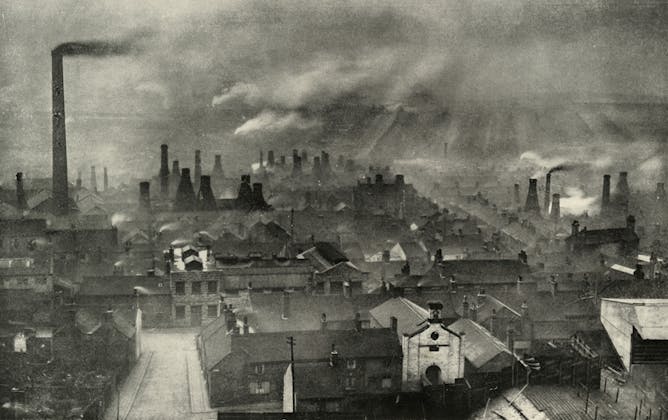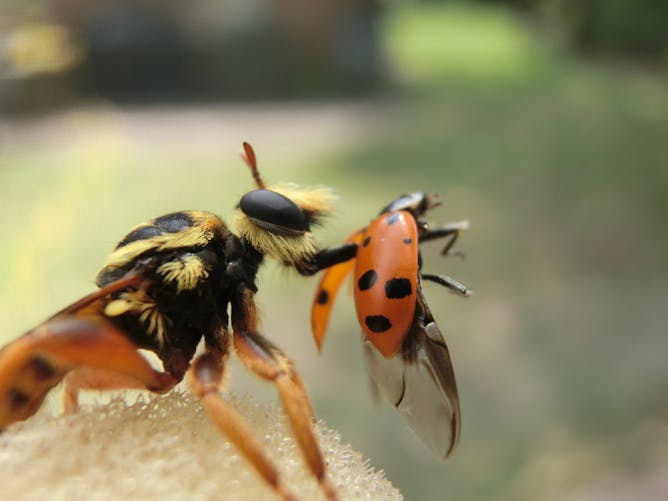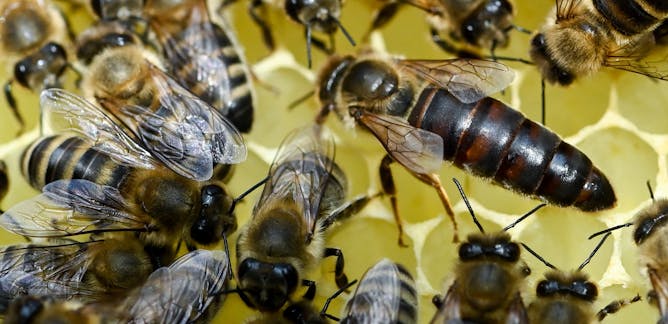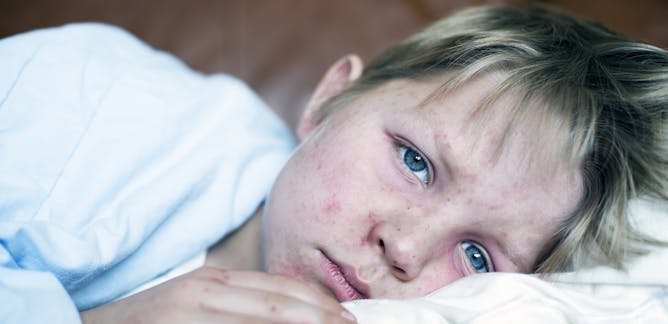|
We’re certainly living in the age of humans, or the Anthropocene – a time when human activities, ranging from fossil fuel burning to deforestation to pollution, are changing the climate and the environment. But is this really a new Anthropocene Epoch in Earth’s geologic time scale?
Scientists have been debating that question for 15 years. Some even proposed a date for the start of an Anthropocene Epoch – 1952. But this week, the international scientific committee responsible for such a momentous change in the global time scale rejected the proposal.
Erle Ellis of the University of Maryland, Baltimore County served on a working group involved in those discussions. He explains why the Anthropocene Epoch was rejected – and why that decision has no bearing on the reality that humans are changing the planet in vast and often destructive ways.
Also in this week’s science news:
If there’s a subject you’d like our team of science editors to investigate, please reply to this email.
|

Human influence on the climate started even before the Industrial Revolution.
Print Collector/Getty Images
Erle C. Ellis, University of Maryland, Baltimore County
Scientists have been debating the start of the Anthropocene Epoch for 15 years. I was part of those discussions, and I agree with the vote rejecting it.
|

Why do batteries lose charge more quickly when it’s cold?
Halfpoint Images/Moment
Wesley Chang, Drexel University
Electric vehicles are catching on across the US, but they’re also catching on fire in colder regions like the Northeast and Midwest.
|

Robber flies visually track their prey before spearing it with their proboscis.
Paloma Gonzalez-Bellido
Siddhant Pusdekar, University of Minnesota
Not much is known about the predator fly Laphria saffrana. New research identified how they count the wingbeats of their favored prey, letting it slip out of focus before adjusting their heads.
|
|
|

Heidi Collins Fantasia, UMass Lowell
IVF is a decades-old procedure that has allowed increasing numbers of prospective parents to have children. Evolving legislation may put it under threat.
| |

Tricia Wachtendorf, University of Delaware; James Kendra, University of Delaware
Census data and research show all things are not equal in disaster displacement, as two experts in disaster recovery explain.
|

Phil Starks, Tufts University; Aviva Liebert, Framingham State University
A queen’s main job in the hive is to lay eggs and pass genes on to offspring. But many bee species do just fine without queens or big colonies.
| |

David Higgins, University of Colorado Anschutz Medical Campus
A pediatrician and preventive medicine physician explains how measles vaccines became victims of their own success and the risk that rising outbreaks pose to everyone.
|
|
|
|
|
-
Brian Strickland, University of Colorado Anschutz Medical Campus
Whether you’re ascending to high altitudes for casual travel or for adventure tourism, there are specific strategies to help you acclimate and reduce the likelihood of altitude sickness.
-
Ziyad Al-Aly, Washington University in St. Louis
Two new high-profile studies add to the increasingly worrisome picture of how even mild cases of COVID-19 can have detrimental effects on brain health.
-
Kathleen Merrigan, Arizona State University
A new UN report finds that the true global cost of producing food is $12.7 trillion more than consumers pay at the checkout counter. We pay those uncounted costs in other ways.
|
|